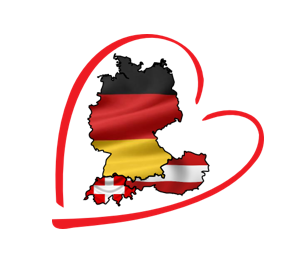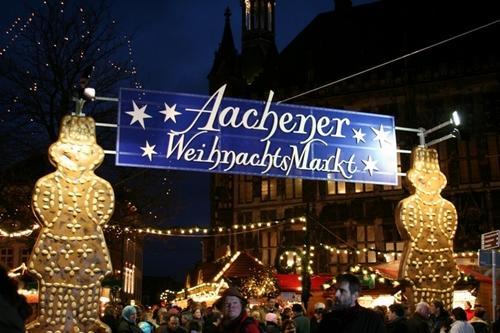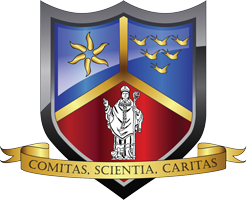German
Guten Tag! Hallo! Willkommen! Grüß Gott! Servus! Grüszi!
Why learn German?
German is the most widely spoken langu age in Europe by population. It is a first language to more people in Europe than French, English or Spanish.
age in Europe by population. It is a first language to more people in Europe than French, English or Spanish.
Germany is also ranked first in terms of UK export markets and the third largest economy in the world. Therefore, being able to communicate in German is a really sought-after skill and a GCSE in German can lead to many areas of work.
Click here for more information: https://www.britishcouncil.org/sites/default/files/languages-for-the-future.pdf
What will I learn at St. Richard’s?
Pupils learn German through the core elements of phonics, vocabulary and grammar which are taught and consolidated through meaningful practice. This ensures that pupils can listen to, read, speak and write German in a broad range of contexts using high frequency vocabulary. This mastery approach not only sets up their language learning for life, but also consolidates their knowledge of English. Language knowledge and practice are sequenced and re-visited systematically to support progression and help pupils to know more and remember more. The range, depth and complexity of their knowledge is extended throughout KS3, to build a secure platform for further language development at GCSE and beyond. Pupils are encouraged to develop their linguistic independence and regularly use websites such as Memrise and Quizlet.
KS4
In Year 10 and Year 11 pupils follow the AQA course specification. In Year 10, students cover the topics of family & marriage, home & town, school & future plans, free time and holidays. In Year 11, pupils cover the environment, global & social issues, customs & festivals, jobs & careers and technology. They develop their competence and understanding of grammar and key skills to ensure they are thoroughly prepared for the GCSE examination at the end of Year 11.
An outline of the GCSE German course (examination board: AQA)
Theme 1: Identity and Culture
- Me, my family and friends
- Technology in everyday life
- Free-time activities
- Customs and festivals
Theme 2: Local national, international and global areas of interest
- Home town, neighbourhood and region
- Social issues
- Global issues
- Travel and tourism
Theme 3: Current and future study and employment
- My studies
- Life at school/college
- Education post-16
- Career choices and ambitions
GCSE German has a Foundation Tier (grades 1 – 5) and a Higher Tier (grades 4 – 9). Pupils must enter for all four skills at the same tier. Each of the four skills is worth 25% of the final grade. All skills are tested in final examinations at the end of the course in Year 11.
Click here for more information: http://www.aqa.org.uk/subjects/languages/gcse/german-8668
How can I help my child at home?
It is really not necessary to know German at all. You can support your child by:
- Asking what has been learnt in each lesson.
- Reinforcing the importance of spending 10 minutes at the end of each day revisiting class notes.
- Testing your child on class notes made especially on vocabulary and grammar when learning is set for homework.
- Discouraging your child from using Google Translate or other similar online translation tools. Instead, provide an up-to-date Collins dictionary to support the completion of homework.
- Encouraging your child to visit the following language websites to practise reading and writing the language and hear the language spoken:
https://www.kerboodle.com (to access the German GCSE textbook)
https://www.pearsonactivelearn.com (to access a range of self-assessment materials)
https://quizlet.com & https://www.memrise.com (to learn and practise vocabulary)
http://www.languagesonline.org.uk/ & http://www.languageskills.co.uk (for revision)
http://www.leo.org (excellent German online dictionary)
http://www.deutschseite.de/ (great for German grammar)
Are there any trips?
Yes! The German Department runs a weekend trip for Year 10 pupils to the Christmas Markets in Aachen and Bonn every year in December. Pupils have the opportunity to practise their German by buying items in the markets and the chance to taste traditional German Christmas food such as Stollen, Lebkuchen and of course Bratwurst. Whilst in Aachen, the pupils visit Aachen Cathedral for prayers and reflection and are also able to try their hand at ice skating. This is a wonderful opportunity for pupils to visit Germany and experience their language and culture first-hand.



